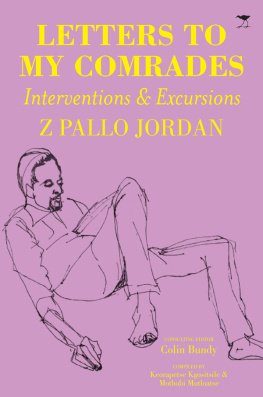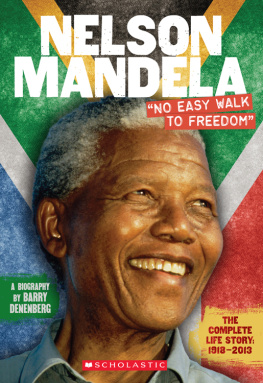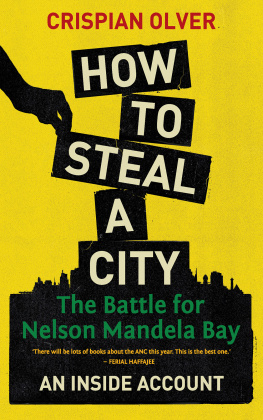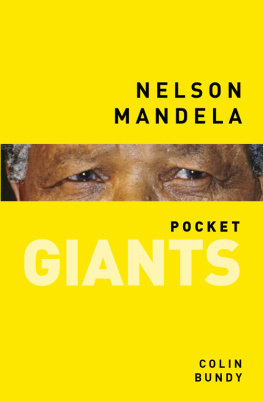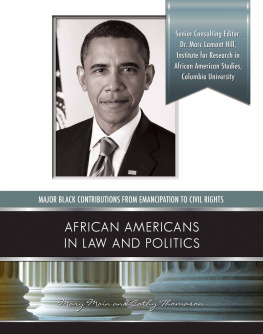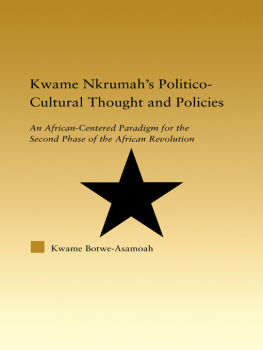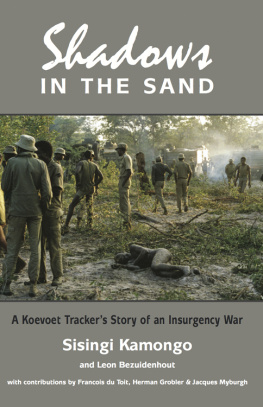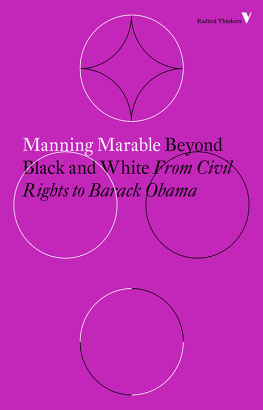At this point in history one cannot help but commend the efforts of Keorapetse Kgositsile and Mothobi Mutloatse for putting into book form the writings of Comrade Z Pallo Jordan, who undoubtedly ranks among the sharpest minds in the intellectual history of the African National Congress (ANC) and indeed our country.
In many ways this book is strikingly apt for the current historical period. For one thing, it is being published at a time when the current phase of the historical process is astride two separate but conceptually inter-linking periods the apartheid and the post-apartheid stages. In consequence the book gives the reader a historical continuum, surfacing Jordans and by extension the ANCs core thinking on the anti-apartheid struggle as well as the novel paradigms that emerged on the heels of the demise of apartheid as the country underwent the process of reconstruction and development. Comrade Jordans reflections illuminate our understanding of this historical process with the rare clarity of mind for which he is reputed.
Over the many years of exile and the twenty-four years since our return ekhaya I have followed his writings eagerly and I have sometimes been lost in the intricacies of his phenomenal arguments about the history and culture of South Africa.
He is the arch that has exerted pressure to support the building of our nation. The driving force of his arguments sometimes grates against the grain, even antagonises because his search for truth is unyielding and can beggar the very persuasion that ought to inform public commentary.
I shudder to think how he has been able to maintain the intellectual equanimity during all the decades of what he would, of course, being Pallo Jordan call his Faustian pact, causing all and sundry to rush to their dictionaries to refresh their understanding of this allusion.
This book is a tribute to Pallos outstanding contribution to our struggle for freedom, to thought leadership and to standing up not only for what is right but also against that which is wrong, regardless of the consequences. It makes an important contribution to the telling of the South African story through the voice and thoughts of one of South Africas freedom fighters Z Pallo Jordan, a person I have been privileged to work with and know over many decades, and who helped forge our young democracy.
Letters to My Comrades
Interventions & Excursions
Z Pallo Jordan
COMPILED BY
Keorapetse Kgositsile
& Mothobi Mutloatse

In association with
African Lives Series
This book is number 8 in the African Lives Series, an independent writing and publishing initiative that aims to contribute to a post-colonial intellectual history of South Africa. The series editor is Prof. Andre Odendaal.
First published by Jacana Media (Pty) Ltd in 2017
10 Orange Street
Sunnyside
Auckland Park 2092
South Africa
+2711 628 3200
www.jacana.co.za
Z Pallo Jordan, 2017
All rights reserved.
d-PDF ISBN 978-1-4314-2596-9
ePUB ISBN 978-1-4314-2597-6
mobi file ISBN 978-1-4314-2598-3
Cover design by Shawn Paikin
Cover image Helen Kritzler
Job no. 003070
See a complete list of Jacana titles at www.jacana.co.za
To preserve the authenticity of these works, Mr Z Pallo Jordans papers have been used as they were originally published. Minor corrections have been made but the works remain in their original form.
Despite our best efforts, we have not been successful in obtaining copyright permissions to republish some of these works. Any queries related to copyright may be addressed to the publisher.
Contents
Acknowledgements
National liberation, according to Amilcar Cabral, is necessarily an act of culture.
C abrals proverb was, and still continues to be, the inspiration behind this compilation of Z Pallo Jordans intellectual and literary thoughts spanning 40 years.
Thank you, mhlekazi Jordan, most graciously for having allowed Professor Willie Keorapetse Kgositsile (your eternal friend) and me to enjoy the rare honour of assembling your creative expressions into this single volume.
Colin Bundy should be commended for invaluable contributions as consulting editor. We also wish to bow our heads to comrades Barbara Masekela, Gil Marcus and former president Kgalema Motlanthe for their passionate tributes to their compatriot during these difficult episodes of our democracy amid the vexing question: Quo vadis ?
Grateful thanks are also due to the National Arts Council for supporting the initial stages of compilation; and also the to the Mutloatse Arts Heritage support team, especially Nthabiseng Mhlongo, not forgetting the library staff at Times Media.
The publishers also wish to acknowledge and thank all the publishers of the numerous journals, newspapers and magazines in which the writings of Z Pallo Jordan appeared.
Re a leboga go menagane, compatriots Mothobi Mutloatse, publisher, Mutloatse Arts Heritage Trust: www.mutloatse.com
Introduction
Z weledinga Pallo Jordan was born in May 1942, the second of four children two girls, one of whom was adopted, and two boys. Some of the most captivating pages in the autobiography by his mother, Phyllis Ntantala, are those recalling the familys life in Cape Town in the 1940s and 1950s. The family moved to Cape Town in 1946 when his father, A.C. Jordan, was appointed to a lectureship at the University of Cape Town (UCT). In November of that year A.C. (known to his familiars as Joe) bought a plot of land in Fleur Road, Lincoln Estate, in the suburb of Crawford, and built the family home there.
The Jordans were the only African family in Lincoln Estate, a racially mixed, predominantly Coloured working-class area. The children attended local schools where they all did well, Phyllis noted matter-of-factly: Pallo proceeded from an Anglican primary to complete his Senior Certificate at Athlone High School . His parents had previously avoided Athlone High School as they disapproved of its principal as a collaborator: he belonged to a conservative teachers association, formed when Non-European Unity Movement (NEUM) teachers seized control of the older Teachers League of South Africa. Both Phyllis and Joe had cut their political teeth in the teachers movement in the Orange Free State and later the Cape African Teachers Association; his closeness to I.B. Tabata (his best friend according to Phyllis) made their commitment to the TLSA a given. Phyllis was a member of half-a-dozen left-wing groups, all affiliated to Tabatas NEUM.
Politically active she was through these years, but for the first time while her children were growing up, Phyllis did not go to work but stayed at home, until she returned to her studies in 1957 to take the Diploma in Native Administration (taught by Jack Simons) at UCT. And so Pallo entered his teens during years when her children on return from school were always with me, in the kitchen, in the living-room, in their bedroom, out in the yard, doing things together. They learned to paint, and to cook: as they grew up, the Jordan children were exposed to a world of books, music and progressive ideas [they] lived in a world of ideas, in an intellectual atmosphere. They went to classical music concerts, shows and plays, ballet and the open-air productions at Maynardville; at home, fortnightly family evening recitals and Sunday music evenings were regular events.

